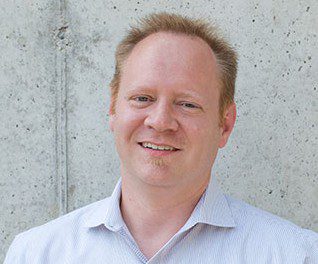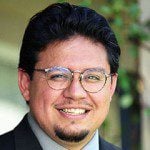The Patheos Faith and Work Channel recently contacted leaders of some prominent community development and entrepreneurial organizations to talk about successes and difficulties in their attempts to transform communities through the growth of new businesses and attention to the dignity of work. Over the next few days, just in time for Thanksgiving, MISSION:WORK will be featuring their stories. Here is the fourth.
 By David Spickard, Jobs For Life
By David Spickard, Jobs For Life
What is the basic mission of Jobs for Life and how did it come about?
Our mission is to engage and equip local churches to address the impacts of joblessness through the dignity of work. We started in Raleigh, NC in 1996 through the relationship between Chris Mangum who owned CC Mangum Company and Pastor Donald McCoy of Pleasant Hill United Church of Christ, a small African-American church. Chris’s company had paved Pastor McCoy’s church’s parking lot, and through that project, they became friends and decided to meet for lunch each week. During one of those lunches, Chris shared with Pastor McCoy several of his company’s large trucks were sitting parked in his company’s parking lot because he could not find good drivers. Pastor McCoy responded by saying, “I have able bodied men and women in my church and community who are parked just like your trucks because they don’t have a job. They come to our Sunday service homeless, unemployed and underemployed, but no matter how hard I preach the gospel to them, they walk out homeless, unemployed, and underemployed, saying Pastor, I need a job.” In that moment, the concept of Jobs for Life was born.
Chris and Pastor McCoy realized they had something the other needed and they committed to gather 12 business friends and 12 pastors together to see if they had the same needs. Sure enough, during the gathering, a businessman raised his hand and said “I have an open position and we need somebody today.” A pastor responded by saying he knew the exact person for that job. They began to place persons in jobs through relationships, but they learned quickly it was one thing to help someone get a job, quite another to help them keep it. Many people had physical, emotional, and spiritual barriers preventing them from being an effective employee and all God had created them to be. To overcome these barriers, they created what is now the Jobs for Life class – a strategy to mobilize local churches and ministries to teach people a biblical perspective of work, connect them to life giving mentor relationships, and help them find and keep meaningful employment.
Now in 275 cities and 10 countries, JfL classes are being held in urban and suburban churches across race and denomination as well as Christ-centered ministries like prison reentry programs, rescue missions, YMCAs, and programs for at-risk youth. Ultimately we’re trying to equip the church to move beyond temporary assistance of the poor and engage them in ways that deepen relationships and help them take care of themselves and their families.
We talk a lot about “flipping the list.” Based on a study done at Duke University, the top way the Church engages in outreach to the materially poor in America is food, the 2nd housing, the 3rd clothing. Only 2% of American churches do programs related to work and helping people find jobs. What if work were on top of that list?
How have work opportunities and other social projects from your networks actually transformed communities?
We reach about 5,500 people a year. One woman in Alabama named Joy grew up a child of a single mom living on public assistance. Her mom sent her to her grandparents for help, but her grandfather would molest her every time in order for her to get help. Joy grew up in a world of prostitution and drugs, had 6 kids with 5 fathers, and eventually started dealing drugs and got arrested. She encountered a group of women teaching Bible studies in the jail who wanted to do something to help the women transition out of jail. The group ran a JfL class in the jail and used that to connect relationally. Joy was in the class and really connected; she developed a deep relationship with her mentor Margie. They are now lifelong friends. Joy is out of jail, working full time, has a home with her kids, and is teaching a JfL class in the same jail where she had been incarcerated.
Another success story is Dwight, who was in prison for 29 years. When he got out of prison, for a few years he couldn’t get a job. He took a JfL class in a suburban church in Raleigh. One of the businesses that came to class to present had an opening cleaning offices. He pursued this, and loved it so much that he now has his own cleaning business.
These stories don’t fully capture what happens in a local church as well. Once you engage folks around work and help them understand a Biblical perspective of work for themselves, many people in the church grow in their understanding of their own poverty and how God has positioned them in their own work for His glory. Also, once you have helped someone find and keep a job, it makes you feel much differently about the kind of temporary forms of outreach churches have been doing.
Businesspeople also become engaged at a deeper level. Some of our best instructors are CEOs of companies now positioned to teach a Biblical view of work. They recognize the value of the folks in the class and open up their networks on behalf of the students. Finding and keeping a job is so much who you know; the materially poor don’t have those networks. The church is a built-in network we can mobilize on behalf of those in need. Businesses are now thinking of entrepreneurship in communities that are under-resourced and need jobs. Businesspeople have become creative with job creation and entrepreneurship.
Have there been any failures in the process, and what instructive lessons did you take from them?
There are several challenges. One is to keep our eyes focused on equipping and engaging the local church, making sure everything we do is done through the local church. Mistakes have been made when we do work the church is designed to do, or create infrastructure through our work that inhibits the local church. There’s a difference between creating a platform for the church to do the work it’s called to do, unleashing and empowering, versus being the platform and asking for the church’s help, being the solution and asking the church to help us do our work. We’re constantly trying to evaluate whether we’re crossing that line.
The church in my lifetime has been predisposed to the idea that we have systems and structures in place to deal with those in need, like government programs and nonprofits. It’s in the church’s DNA to say “We’re not equipped to do that, we need to use the professionals”. We’ve found over and over again that the church is fully equipped, full of people who are able to walk with people in need, transform their lives, and have their own lives transformed as well.
Also, there’s a different expectation of time. We can think results are going to happen more quickly than they do, and not always build strategies to last over the long haul. We’re beginning to talk about having a generational time frame. There’s an urgency to be engaged in the work today, but the ultimate impact may not be realized until the lifetimes of our children’s children.
Learn more about Jobs for Life here.
Previous posts in this series:








 By Joel Hamernick,
By Joel Hamernick, 






